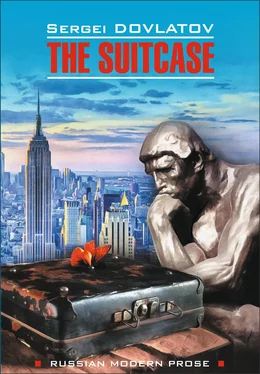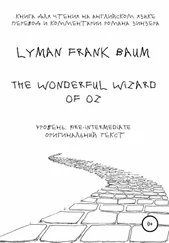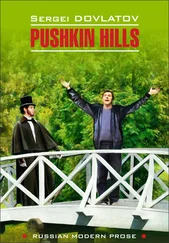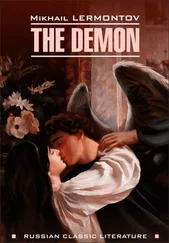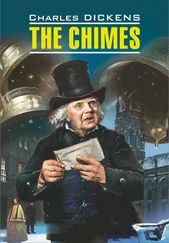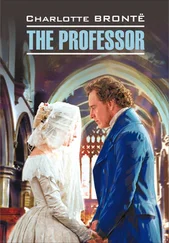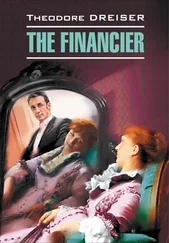“What about me?”
“You won’t. You’ll have other problems.”
I didn’t ask which ones.
Taking his leave, Fred added, “You’ll get your share on Thursday.”
I went home feeling a strange mixture of anxiety and elation. There must be some vile power in crazy money.
I didn’t tell Asya about my adventure. I wanted to amaze her. To turn suddenly into a rich and expansive man.
Meanwhile, things were growing worse with her. I kept asking her questions. Even when I was putting down her friends, I used the interrogative form: “Don’t you think that Arik Shulman is a jerk?” I wanted to compromise Shulman in Asya’s eyes and achieved just the opposite, of course.
I’ll tell you, running ahead of my story, that we broke up in the fall. For sooner or later a person who keeps asking questions is going to learn to give answers…
Fred called on Thursday. “A catastrophe!”
I thought Rymar had been arrested.
“Worse,” said Fred. “Go into the nearest clothing store.”
“Why?”
“All the stores are flooded with crêpe socks. Soviet crêpe socks. Eighty copecks a pair. Quality no worse than the Finnish ones. The same synthetic shit.”
“What can we do?”
“Nothing. What could we do? Who would have expected a low blow like this from a socialist economy? Who can I give Finnish socks to now? They won’t take them for a rouble now! I know our damned industry. First they screw around [23] to screw around – бездельничать
for twenty years and then – bam! And all the stores are filled with some crap or other. Once they get a production line going, that’s it. They’ll stamp out millions of those crêpe socks a minute.”
We divided up the socks. Each of us got two hundred forty pairs. Two hundred forty pairs of identical, ugly, pea-green-coloured socks. The only consolation was the “Made in Finland” label.
After that, many things happened. The operation with the Italian raincoats. The resale of six German stereos. A brawl in the Cosmos Hotel over a case of American cigarettes. Carrying a load of Japanese cameras and fleeing a police squad. And lots of other things.
I paid off my debts. Bought myself some decent clothes. Changed departments at college. Met the girl I eventually married. Went to the Baltics for a month when Rymar and Fred were arrested. Began my feeble literary attempts. Became a father. Got into trouble with the authorities. Lost my job. Spent a month in Kalyayevo Prison.
And only one thing did not change: for twenty years I paraded around in pea-coloured socks. I gave them to all my friends. Wrapped Christmas ornaments in them. Dusted with them. Stuck them into the cracks of window frames. And still the number of those lousy socks barely diminished.
And so I left, leaving a pile of Finnish crêpe socks in the empty apartment. I shoved three pairs in my suitcase.
They reminded me of my criminal youth, my first love and my old friends. Fred served his two years and then was killed in a motorcycle accident on his Chezet [24] Chezet – чешская марка мотоциклов
. Rymar served one year and now works as a dispatcher in a meat-packing plant. Asya emigrated and teaches lexicology at Stanford – which is a strange comment on American scholarship.
The Nomenklatura [25] nomenklatura – высший слои руководства в СССР
Half-boots
I must begin with a confession. I practically stole these shoes…
Two hundred years ago the historian Nikolai Karamzin [26] the historian Nikolai Karamzin: Nikolai Mikhailovich Karamzin (1766–1826), prominent conservative Russian historian and writer.
visited France. Russian émigrés there asked him, “What’s happening back at home, in two words?”
Karamzin didn’t even need two words. “Stealing,” he replied.
And they really are stealing. On a broader scale every year.
People carry off beef carcasses from meat-packing plants. Carders from textile factories. Lenses from photographic firms. They swipe everything – tiles, gypsum, polyethylene, electric motors, bolts, screws, radio tubes, thread, glass.
Often this takes on a metaphysical character. I’m talking about completely mysterious thefts without any rational goal. That can happen only in the Russian state, I’m convinced.
I knew a refined, noble and educated man who stole a pail of concrete from his job. Along the way the concrete set, of course. The thief threw away the rock-hard lump not far from his house. Another friend broke into a propaganda office and removed the ballot box [27] ballot box – избирательная урна
. He brought it home and promptly lost all interest in it. A third friend stole a fire extinguisher. A fourth stole a bust of Paul Robeson [28] Paul Robeson: Paul Robeson (1898–1976) was an African-American civil-rights activist, singer and actor who received the International Stalin Prize in 1952. His political leanings and outspokenness caused him tremendous problems in America.
from his boss’s office. A fifth, the poster column from Shkapin Street. And a sixth, a lectern from an amateur theatre club.
I, as you will see, acted much more practically: I stole good-quality Soviet shoes, intended for export. Of course, I didn’t steal them from a store. Soviet stores don’t carry shoes like that. I swiped them from the chairman of the Leningrad City Executive Committee – otherwise known as the mayor of Leningrad. But we’re getting ahead of ourselves.
After the army, I took a job with a factory newsletter. I spent three years there. I realized that ideological work was not for me. I wanted something more direct, posing fewer moral doubts.
I remembered that I had attended art school a long time before (the same one, incidentally, which graduated the famous artist Shemyakin [29] the famous artist Shemyakin: Mikhail Mikhailovich Shemyakin ( b. 1943), a painter who studied at the Repin Academy in Leningrad (now St Petersburg) and, after frequent clashes with the KGB, left the Soviet Union in 1971.
). I had retained a few skills.
Friends with pull [30] with pull – по блату
got me into a DPI, a decorative and applied arts studio. I became an apprentice stone-cutter. I decided to “find myself” in monumental sculpture.
Alas, monumental sculpture is a very conservative genre. The cause is the monumentality itself. You can secretly write novels and symphonies. You can secretly experiment on canvas. But just try to hide a twelve-foot-high sculpture!
For work like that you need a roomy studio. Significant support systems. A whole staff of assistants, moulders and loaders. In short, you need official recognition. And that means total dependability. And no experimentation…
Once I visited the studio of a famous sculptor. His unfinished works loomed in the corners. I quickly recognized Yuri Gagarin, Mayakovsky, Fidel Castro [31] Yuri Gagarin, Mayakovsky, Fidel Castro: Yuri Alexeyevich Gagarin (1934-68), Soviet cosmonaut and the first man in space, who received the most prestigious award in the USSR, “Hero of the Soviet Union”; Vladimir Vladimirovich Mayakovsky (1893–1930), Russian Futurist poet and Soviet propagandist, often seen as the exemplar of Soviet art; Fidel Castro (1926–2016), leader of the Cuban revolution and subsequently First Secretary of the Communist Party of Cuba.
. I looked closer and froze – they were all naked. I mean, absolutely naked. With conscientiously modelled buttocks, sexual organs and muscles. I felt a chill of fear.
“Nothing unusual,” the sculptor explained. “We’re realists. First we do the anatomy, then the clothes.”
Читать дальше
